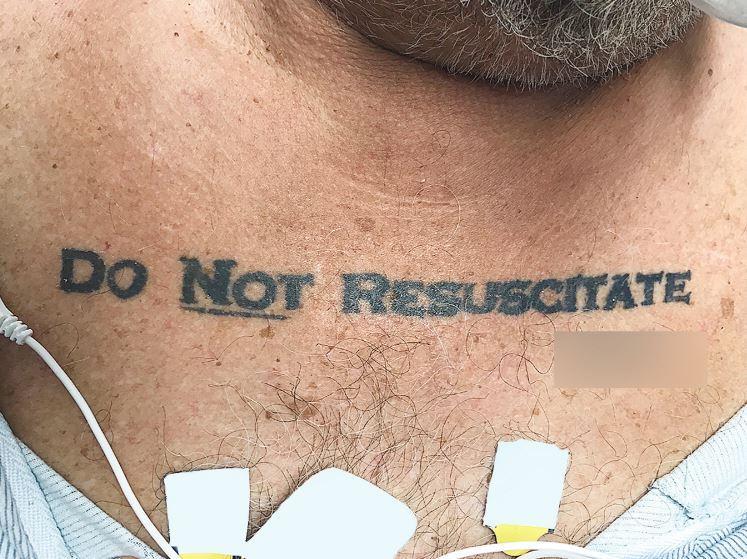Doctors stumped by unconscious patient with 'do no resuscitate' tattoo
70-year-old man brought to emergency department drunk and the hospital couldn't find his next of kin

Doctors were left with an ethical dilemma after an unconscious patient was brought into their hospital with a "do not resuscitate" tattoo on his chest.
The 70-year-old man was taken by paramedics into the emergency room at Miami University Hospital with a high blood-alcohol level and without any identification, according to the New England Journal of Medicine.
Doctors discovered the patient’s tattoo with his signature beneath, but could not find a next of kin or any medical paper work for him.
When his pulse began to slow, the doctors made the decision to treat the patient in case the tattoo was not a genuine statement of his wishes, during which time an ethics consultation was requested.
After consulting the ethics team the decision was made to honour the ‘do not resuscitate’ tattoo and the patient died during the night. After the decision had been taken, social workers also found a separate official document corroborating the tattoo's instruction.
The authors of the journal’s case study, wrote: “We initially decided not to honour the tattoo, invoking the principle of not choosing an irreversible path when faced with uncertainty.
“This decision left us conflicted owing to the patient’s extraordinary effort to make his presumed advance directive known; therefore, an ethics consultation was requested.”
Gregory Holt, the lead author of the new case study, said the biggest concern for him was whether it was legally the right decision.
“Florida has stringent rules on this,” he told Gizmodo.
It is not the first time a patient’s tattoo has stumped doctors. A case study in the Journal of General Internal Medicine described doctors discovering a diabetic man who was in hospital for a leg amputation but had "D.N.R" tattooed on his chest.
In that case, the patient claimed to have had the tattoo after losing a bet and told doctors he did not think anyone would take it seriously.
Join our commenting forum
Join thought-provoking conversations, follow other Independent readers and see their replies
Comments
Bookmark popover
Removed from bookmarks